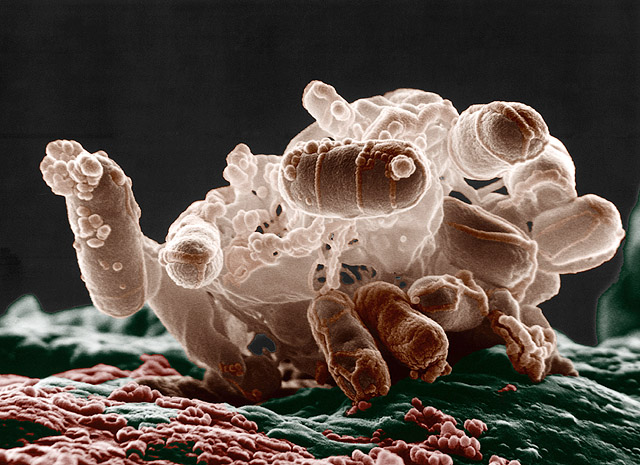Some individuals carry genes that select populations of gut microbes that keep them slim, a new study has shown.
So the saying goes, "you are what you eat," but a study  comparing the bugs living in the guts of identical and non-identical twins has helped scientists flush out a strain of bowel bacteria that appear to control weight gain and keep carriers slim.
comparing the bugs living in the guts of identical and non-identical twins has helped scientists flush out a strain of bowel bacteria that appear to control weight gain and keep carriers slim.
Writing in Cell, Cornell scientist Ruth Ley and her colleagues compared the DNA profiles of bacteria extracted from faecal samples contributed by 416 pairs of UK-based twins, 171 of them identical and 245 non-identical.
The purpose of using twins in the study was to disentangle the influence of genetics from the impact of an individual's diet and environment. So twins can share an identical upbringing, but if they are non-identical then their genes differ.
Analysis of the samples from both groups showed that the presence of a small proportion - about 1% - of bowel bacterial species is influenced by an individuals' genes. And among the bacteria affected, one species, called Christensenella minuta, is linked to body weight, with carriers being significantly less likely to be obese than non-carriers.
To test this, Ley and her colleagues colonised the intestines of mice with bugs from the faeces of obese humans lacking Christensenella bugs. A second group of mice were given the same bugs but with Christensenella added. Three weeks later the mice given the Christensenella organisms weighed significantly less than the animals colonised only with the obese human flora.
According to Ley, "our findings indicate that host genetics influence the composition of the human gut microbiome and can do so in ways that impact host metabolism."
- Previous Fetus found in ancient horse
- Next Shift work harms cognition










Comments
Add a comment